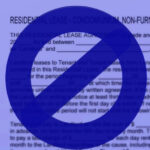 UPDATE: A new version of 5-12-130(j) has passed the City Council. This article is no longer timely. As Chicago landlord-tenant attorneys, one situation that we frequently run into is when a Chicago landlord is forced to serve a sixty (60) day notice to terminate tenancy instead of a thirty (30) day notice. This situation arises when the CRLTO applies and the tenant’s lease term has expired without the landlord serving a proper notice of intent not to renew. Many Chicago landlord’s incorrectly believe that once a lease term expires, that is the end of the tenancy. This is not so.
UPDATE: A new version of 5-12-130(j) has passed the City Council. This article is no longer timely. As Chicago landlord-tenant attorneys, one situation that we frequently run into is when a Chicago landlord is forced to serve a sixty (60) day notice to terminate tenancy instead of a thirty (30) day notice. This situation arises when the CRLTO applies and the tenant’s lease term has expired without the landlord serving a proper notice of intent not to renew. Many Chicago landlord’s incorrectly believe that once a lease term expires, that is the end of the tenancy. This is not so.
Lease
Compliance with the Chicago Heating Cost Disclosure
 Certain Landlords must provide a heating cost disclosure in Chicago
Certain Landlords must provide a heating cost disclosure in Chicago
Tenants responsible for paying for the cost of their gas or electric can often be surprised by the high price of their energy bills. To combat the impact of those surprises, the City of Chicago passed an ordinance at Chapter 5-16 of the Chicago Municipal Code entitled Disclosure of Heating Costs to Tenants and most Chicago landlords need to comply.
Chicago’s first blizzard and landlord tenant snow removal
 City of Chicago rules for shoveling sidewalks!
City of Chicago rules for shoveling sidewalks!
Remember, the city requires that Chicagoans must remove ice and snow after a snowfall.
Our first big snow of 2011 calls for a refresher with this link to our post from February about a landlord and tenant’s obligation to remove snow and ice. Our snow and ice removal “cheat sheet” can be found after the break.
But there is no lease!
 I was recently contacted by a property owner who inquired about removing a tenant who is renting a room in the property owner’s house. I explained to the property owner that the procedures of the Forcible Entry and Detainer Act must be satisfied to remove the tenant.
I was recently contacted by a property owner who inquired about removing a tenant who is renting a room in the property owner’s house. I explained to the property owner that the procedures of the Forcible Entry and Detainer Act must be satisfied to remove the tenant.
The property owner then informed me that ‘there is no lease’ and that the tenant has to leave as ‘it is my house’. Many landlords feel this way.
Illinois Residential Real Property Disclosure and Leases?
 When most Illinois property owners sell real estate, there is a law, the Illinois Residential Real Property Disclosure Act, that requires that they provide a copy of a completed Illinois Residential Real Property Disclosure to all prospective buyers. The act imposes certain liability on the Seller for certain errors, inaccuracies, or omissions. What does that have to do with Illinois leases? A lease transaction, after all, is not a sale.
When most Illinois property owners sell real estate, there is a law, the Illinois Residential Real Property Disclosure Act, that requires that they provide a copy of a completed Illinois Residential Real Property Disclosure to all prospective buyers. The act imposes certain liability on the Seller for certain errors, inaccuracies, or omissions. What does that have to do with Illinois leases? A lease transaction, after all, is not a sale.
Governor Quinn signs new eviction legislation SB 1766
On August 2, 2011, Governor Quinn signed into law Senate Bill 1766 which became Public Act 97-0236, a bill opposed by the Chicago Creative Investors Association and the Illinois Rental Property Owners Association. The law which amends Section 9-120 of the Code of Civil Procedure (the eviction law that deals with a leased premises used in furtherance of a criminal offense), as enacted, purports to provide additional rights to landlords related to crime on a rental premises. The CCIA makes a number of arguments against the law.
Crime Free Addendums in Illinois
Many Illinois municipalities require some form of “Crime Free” lease addendum. (Here is a sample copy of the addendum provided by the Village of Palatine.) Such an addendum seeks to make it easier for a landlord to evict a tenant if the tenant or tenant’s guests engage in criminal acts.
Can a Chicago landlord refuse a sublese?
 No. That was easy. But, as is usually true in Chicago landlording, there’s much more to the story. What is a sublease anyway? A sublease is merely a further leasing (by the tenant) of already leased property. When a tenant, for whatever reason, is unable to meet lease obligations, that tenant might seek to lease the unit to a tenant of their own- a subtenant. By doing so, the original tenant finds a new party to assist in meeting the lease obligations.
No. That was easy. But, as is usually true in Chicago landlording, there’s much more to the story. What is a sublease anyway? A sublease is merely a further leasing (by the tenant) of already leased property. When a tenant, for whatever reason, is unable to meet lease obligations, that tenant might seek to lease the unit to a tenant of their own- a subtenant. By doing so, the original tenant finds a new party to assist in meeting the lease obligations.
Illinois landlord tenant insurance requirements
 A pipe accidentally bursts in the closet wall of a rented apartment and a tenant’s property suffers major water damage. The tenant thinks the landlord is responsible and that the landlord’s insurance will cover the tenant’s damaged property. In most cases, the tenant is, unfortunately, mistaken. What kind of rules govern the insurance requirements of landlords and tenants?
A pipe accidentally bursts in the closet wall of a rented apartment and a tenant’s property suffers major water damage. The tenant thinks the landlord is responsible and that the landlord’s insurance will cover the tenant’s damaged property. In most cases, the tenant is, unfortunately, mistaken. What kind of rules govern the insurance requirements of landlords and tenants?

